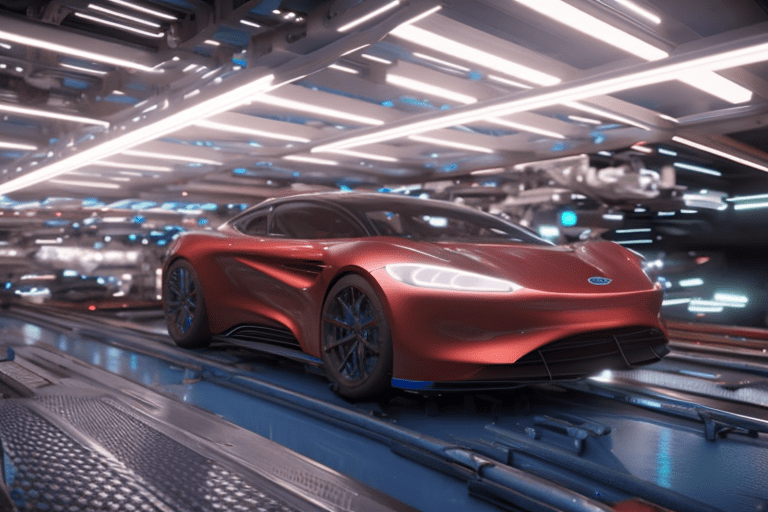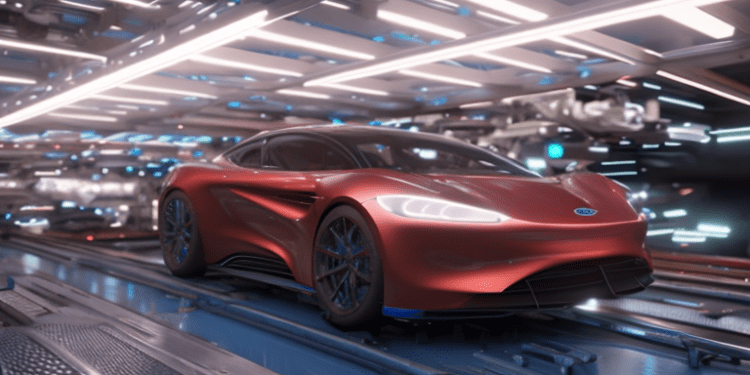Ford has become the #2 electric vehicle seller in the USA, and now it’s #1 in something else in the field. The Michigan-based automaker is investing $3.5 billion into a new lithium iron phosphate (LFP) battery factory in Marshall, Michigan. This is the first time an automaker has committed to producing both NMC (nickel manganese cobalt) and LFP batteries for electric vehicles in the United States.
The new factory, dubbed “BlueOval Battery Park Michigan,” is expected to start production in 2026 and will have a production capacity of 35 GWh, enough to power 400,000 Ford electric cars, trucks, and SUVs. LFP batteries have less energy density and power density than NMC batteries, but they can be cheaper and have other benefits such as being able to charge to 100% without concern for battery degradation. Ford plans to use LFP batteries in some versions of the Mustang Mach-E this year and in some trims of the F-150 Lightning in 2024.
Ford’s investment in the LFP battery factory is part of a larger plan to invest more than $50 billion into the “EV revolution.” This investment is estimated to create 18,000 direct jobs and 100,000 indirect jobs in Kentucky, Michigan, Missouri, Ohio, and Tennessee. The battery cells that will go into the battery packs produced in Michigan will come from China’s CATL, while Ford also has battery partnerships with South Korea’s SK On and LG Energy Solution.
Ford’s commitment to producing both NMC and LFP batteries for electric vehicles in the United States is a major step forward for the EV industry. Not only does it provide customers with more choice, but it also helps to reduce EV prices and create thousands of jobs. Ford’s investment in the LFP battery factory is a sign of its commitment to the EV revolution and its dedication to making electric vehicles more accessible to everyone.
FAQ
Q1. How electric car chargers work?
A1. Electric car chargers work by connecting to an electrical outlet and providing power to the car’s battery. The charger then converts the electricity into a form that the car’s battery can use.
Q2. What electric car has the longest range?
A2. The Tesla Model S has the longest range of any electric car currently on the market, with a range of up to 370 miles on a single charge.
Q3. How electric car batteries are recycled?
A3. Electric car batteries are recycled by breaking them down into their component parts and then separating out the metals, plastics, and other materials for reuse. The metals are melted down and reused in new products, while the plastics and other materials are recycled into new products.









